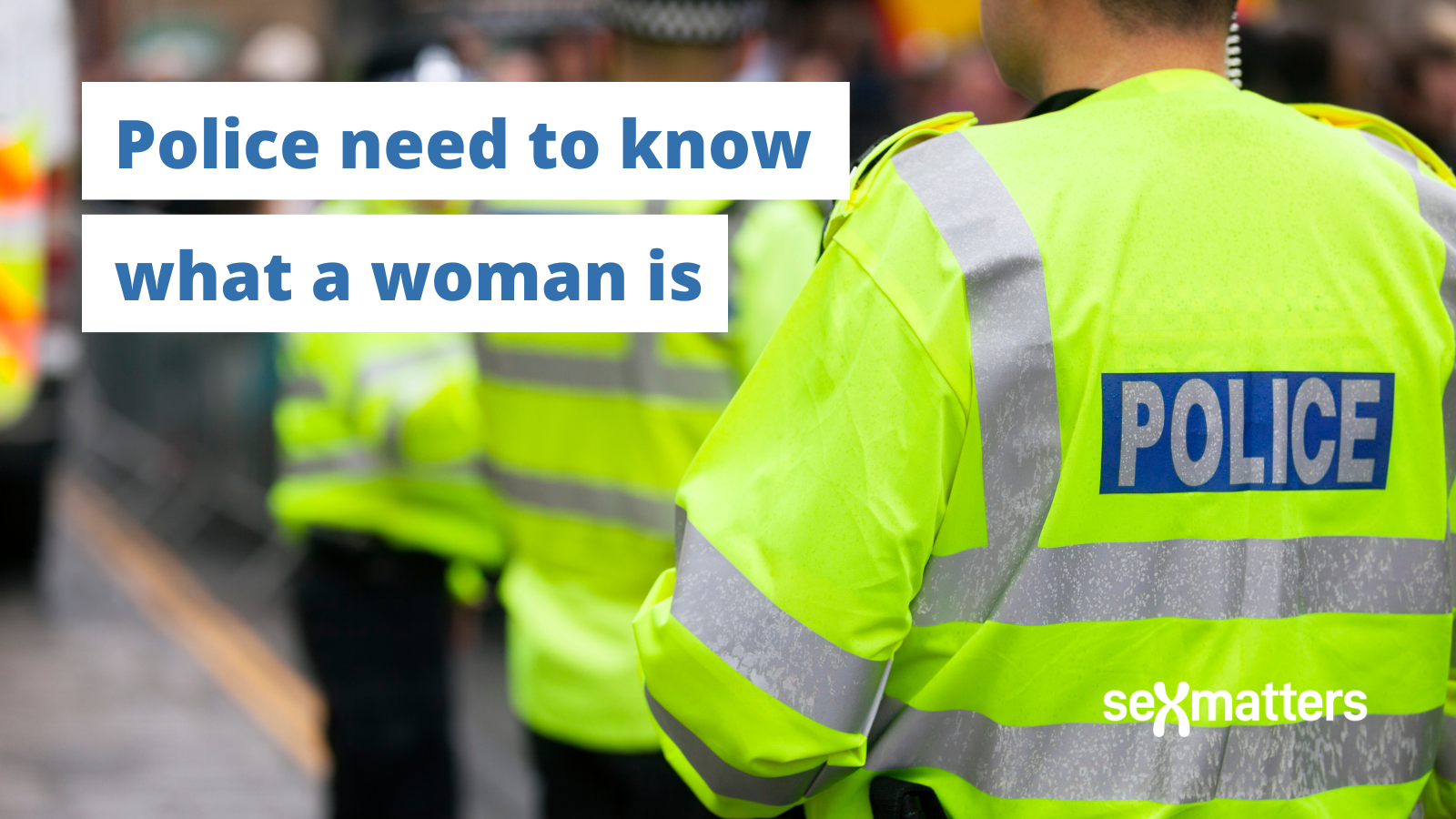Sex and the police: confusion over the law and state-sanctioned sexual assault

Update on the review into activism and impartiality in policing
HM Chief Inspector of Constabulary Fire & Rescue Services (HMICFRS) has today published a letter with interim findings from his review of the politicisation of the police, which was started in September 2023 at the request of the Home Secretary.
We submitted evidence to the review about the systematic abuse of women’s rights by police forces that have been influenced by being part of the Stonewall Champions scheme.
The police must be clear about sex
The inspectorate’s letter raises the issue about the definition of sex and says that “without greater clarity, there is a risk that officers and staff may make the wrong decisions and, in so doing, undermine public trust and confidence”. It states that forces “don’t always do equality impact assessments (EIAs) consistently or thoroughly enough”.
We do not think this is clear enough about the problem, which is that police forces have adopted gender self-identification and disregarded women’s rights.
The HMICFRS letter states:
“Some of the topics [the Equality Act] covers, such as gender and sex, are complicated – and how they apply in individual circumstances is contested.”
Police forces routinely conflate the protected characteristic of sex (being a man or a woman) with the protected characteristic of gender reassignment (being transgender, which does not change a person’s sex). If they conduct equality impact assessments on this basis they will be biassed against the interests of women, whether as complainants, suspects or police officers.
Police forces allow trans-identified men to search women
This week the Women’s Rights Network released a report which showed that 35 out of 47 police forces allow trans-identified male officers to search and strip search female suspects. Female officers may also be forced to intimately search men who identify as women.
This is a breach of these women’s human rights under Article 3 of the European Convention on Human Rights, which classes this as humiliating treatment.
The Police and Criminal Evidence Act 1984 (PACE) requires that individuals are searched by someone of the same sex, not the opposite sex. This is also an issue in the prison service.
The College of Policing’s equality impact assessment on its policy of allowing trans-identified males to search women does not consider the impact on women because it considers “women” to be an identity, which can therefore include people who are male.
On 18th December 2023 the Government Equalities Office released new guidance on the public sector equality duty. This stated clearly: “considering demographics that are not protected characteristics will not help you to comply with the duty. In fact, it could obscure compliance in your supporting records.” As examples of demographics that are not protected characteristics, it gave “gender” and “gender identity”.
The policing minister thinks that a GRC provides access to women’s bodies
At the Home Affairs Select Committee this morning, Diana Johnson asked the Minister of State for Crime, Policing and Fire, Chris Philp MP, about this policy. He gave a strong answer that searching should be done on the basis of biological sex, but then went on to say that if a male police officer has a gender-recognition certificate he is also allowed by law to search female suspects.
We think should be obvious to police forces, the prison service, politicians and the judiciary that if it would be assault for a man to view a woman undressing, or to touch her body without her consent, then it remains assault even if that man has changed his name, grown his hair or is wearing women’s clothing, and even if he has a government-issued gender-recognition certificate.
What needs to happen next?
- We support the call by the Women’s Rights Network for the National Police Chiefs Council and individual forces to withdraw this flawed and dangerous policy on searching.
- We also call on HM Chief Inspector of Fire & Rescue Services to make absolutely clear in his final report that sex means sex when it comes to protecting the rights of women in relation to policing.
- The Policing Minister should reconsider his understanding of the Gender Recognition Act and take responsibility for making clear that the definition of sex in relation to the Police and Criminal Evidence Act is biological sex.
- The Minister for Women and Equalities to take urgent and ambitious action to clarify the meaning of sex in the Equality Act, using whatever non-statutory or legislative means are at her disposal.
Even though very few trans-identifying people have gender-recognition certificates, this problem will not be solved without clarity about the relationship in law between the Gender Recognition Act and other laws, including both PACE and the Equality Act.
Public bodies must be required, as part of the public-sector equality duty, to consider the needs and vulnerabilities of women as a sex. And to do this they need clarity in law that the protected characteristic of sex means sex.
Update: together with Women’s Rights Network and Fair Play For Women, Sex Matters has written to Chris Philp MP, Minister of State for Crime, Policing and Fire, about this.
